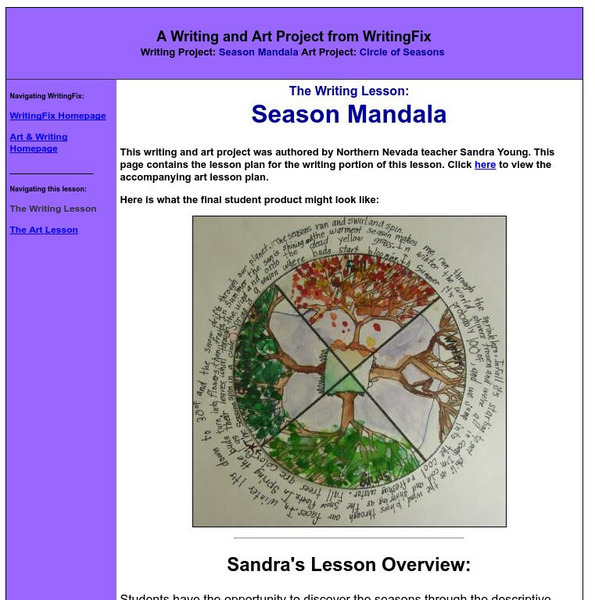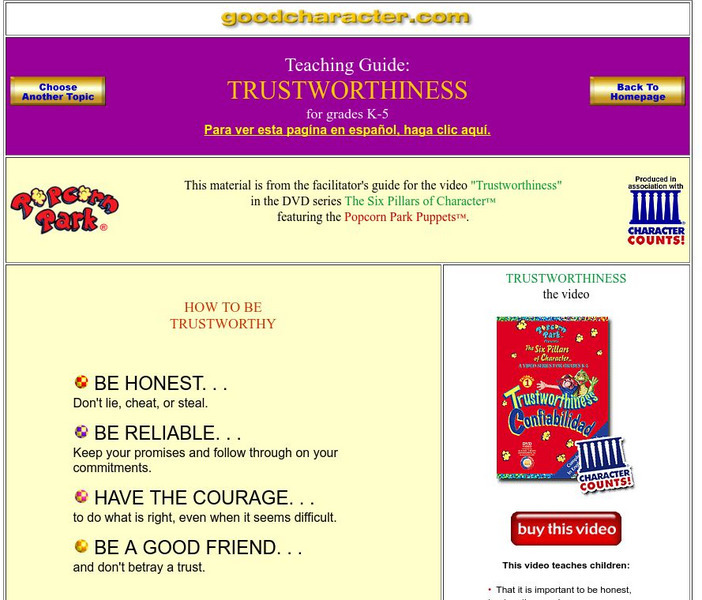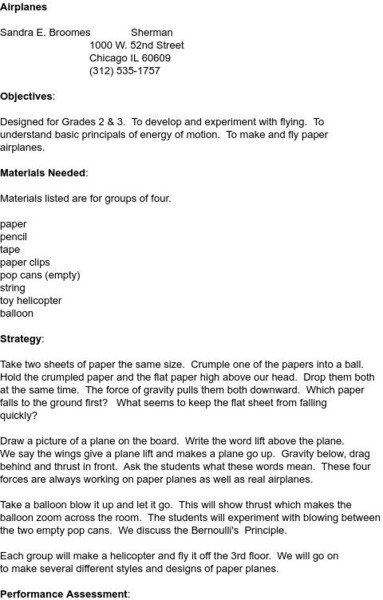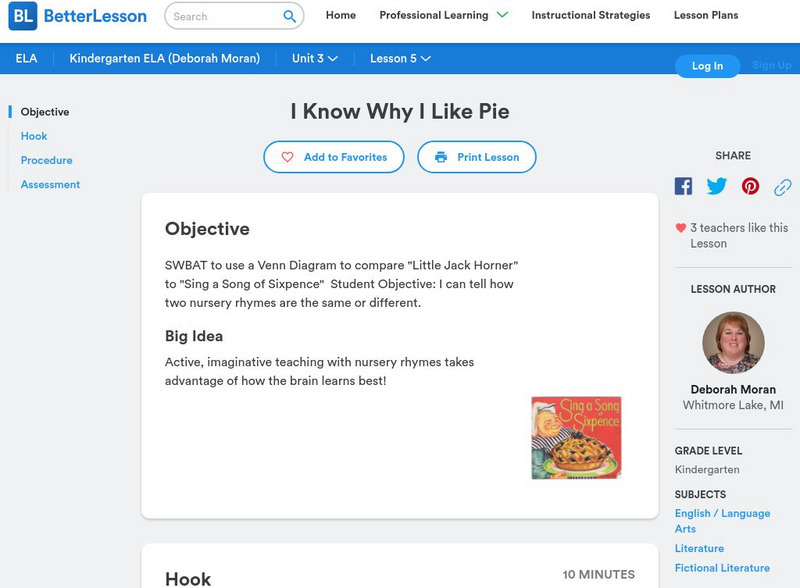PBS
Pbs Learning Media: Rosa Parks: Civil Rights Activist
Through two primary source activities and a short video, students will learn about Parks' lifelong commitment to the Civil Rights Movement.
PBS
Pbs Learning Media: Sojourner Truth: Abolitionist and Women's Rights Activist
Through two primary source activities and a short biographical video, students will understand the remarkable career of this persevering woman who lived up to her self-chosen name.
PBS
Pbs Learning Media: Henry David Thoreau: Author, Philosopher, and Abolitionist
By watching a short video and engaging in two primary source activities, students will explore the philosophy, writings, and impact of Henry David Thoreau.
Writing Fix
Writing Fix: The Writing Lesson: Season Mandala
In this lesson plan, young scholars will learn about the season through decriptive words and phrases incorporated in two different books, Have You Seen Trees? by Joanne Oppenheim and The Seasons of Arnold's Apple Tree by Gail Gibbons....
Michigan State University
Michigan State University: Intervention for Reading: K W L Strategy
The K-W-L strategy stands for what I Know, what I Want to learn, and what I did Learn. By activating students' background knowledge, it improves comprehension of expository text.
American Forum for Global Education
American Forum for Global Education: Haiku as a Cultural Icon
These detailed lesson plans let students research about Shiki and Haiku, compose on their own poetry, and learn about Japanese culture.
Live Wire Media
Good Character: The Six Pillars of Character: Trustworthiness
How can you be trustworthy? Find simple ways to be a trustworthy person, discussion questions, and activity ideas. This website accompanies a video from "The Six Pillars of Character" video series, but can be used by itself or as part of...
Council for Economic Education
Econ Ed Link: Incentives Influence Us
Find out more about the concept of incentives in our economy through this lesson plan. "You will identify incentives used at home and school."
Science and Mathematics Initiative for Learning Enhancement (SMILE)
Smile: Airplanes (2 3)
This paper airplane lesson plan helps students learn about certain concepts like air resistance, motion, and aerodynamics.
US House of Representatives
Office of the Clerk: Lesson Plan "A Bill Becomes a Law"
This lesson introduces students to the legislative process and current bills before the House of Representatives. Discussion questions, critical thinking questions, and learning activities are provided. [PDF]
Orca Book Publishers
Orca Book Publishers: 'Crossbow' Teaching Guide [Pdf]
In Crossbow by Canadian Author Dayle Campbell Gaetz, fourteen-year-old Matt sets out to live as a hermit in a cabin and encounters a stranger who has moved in. At first, they are friends but Matt realizes the stranger is hiding dangerous...
Utah Education Network
Uen: Bean Bag Challenges
Young scholars will learn physical fitness terminology as they participate in a bean bags activity.
Council for Economic Education
Econ Ed Link: A Penny Saved Is a Penny at 4.7% Earned
This is a lesson from EconEdLink where young scholars learn about saving money. Includes activities and materials.
Better Lesson
Better Lesson: I Know Why I Like Pie
Active, imaginative teaching with nursery rhymes takes advantage of how the brain learns best! In this lesson, students will use a Venn Diagram to compare "Little Jack Horner" to "Sing a Song of Sixpence"
HotChalk
Hot Chalk: Lesson Plans Page: Science Lesson on Water
This activity will teach students about the three states of water found on our planet: solid, liquid gas. They will learn to distinguish the differences between these states and will be able to give examples of each.
Other popular searches
- Active Learning Games
- Active Learning Strategies
- Active Learning Lesion
- Maps Active Learning
- Active Learning English
- Abc Active Learning
- Measurement Active Learning
- Active Learning Lesson Plans




![Orca Book Publishers: 'Crossbow' Teaching Guide [Pdf] Lesson Plan Orca Book Publishers: 'Crossbow' Teaching Guide [Pdf] Lesson Plan](http://app.lp.lexp.cloud/content/resources/thumbnails/410131/large/bwluav9tywdpy2symdiwmduymc0ynty1ns0xn3ztngljlmpwzw.jpg?1589985527)

